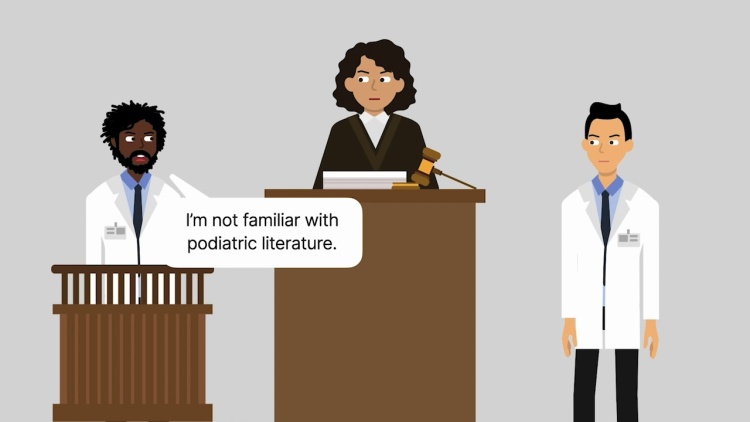Melville v. Southward
Colorado Supreme Court
791 P.2d 383 (1990)
- Written by Lauren Petersen, JD
Facts
Southward (defendant), a podiatrist, recommended a surgical toe shortening to Melville (plaintiff), to relieve pain in her foot. Southward performed the surgery at his office. After the surgery, Southward wrapped Melville’s foot in a bandage and told Melville to soak her foot in vinegar and water. At a checkup a week later, Southward commented that he did not like the appearance of Melville’s foot and gave her an antibiotic. One week later, Melville complained to Southward that her foot was painful, red, and swollen. Southward advised Melville to improve her soaking regimen. Southward examined Melville’s foot two days later, told Melville her foot was healing, and wrapped the foot in fresh bandages. The next day, Melville noticed fluid coming out of a sore near her incision. Melville consulted with her family doctor, who told her that her foot was seriously infected and admitted her to the hospital. Melville had x-rays taken, received intravenous antibiotics, and came under the care of Barnard, an orthopedic surgeon. Melville’s foot was permanently injured by the surgery, impairing her ability to walk and balance. Melville sued Southward for medical malpractice. At trial, Melville offered Barnard as an expert witness. Southward objected, arguing that Melville had not established Barnard’s knowledge of the appropriate standard of care for the surgery. Southward’s objection was overruled. Barnard testified that Southward’s care was substandard, because Melville’s pre-surgery x-rays indicated no need for surgery, and the surgery was performed in Southward’s non-sterile office. Barnard further testified that he had never performed this surgery, lacked education in podiatry, and did not know the standards of care specific to podiatry. Finally, Barnard testified that Southward’s post-operative care was substandard, because Southward failed to immobilize Melville’s foot or provide sufficient antibacterial treatment of the wound. Melville was awarded a judgment of $56,000. Southward appealed. The court of appeals reversed, finding that Melville had failed to present admissible evidence of Southward’s negligence. Melville appealed.
Rule of Law
Issue
Holding and Reasoning (Quinn, C.J.)
What to do next…
Here's why 907,000 law students have relied on our case briefs:
- Written by law professors and practitioners, not other law students. 47,100 briefs, keyed to 996 casebooks. Top-notch customer support.
- The right amount of information, includes the facts, issues, rule of law, holding and reasoning, and any concurrences and dissents.
- Access in your classes, works on your mobile and tablet. Massive library of related video lessons and high quality multiple-choice questions.
- Easy to use, uniform format for every case brief. Written in plain English, not in legalese. Our briefs summarize and simplify; they don’t just repeat the court’s language.





